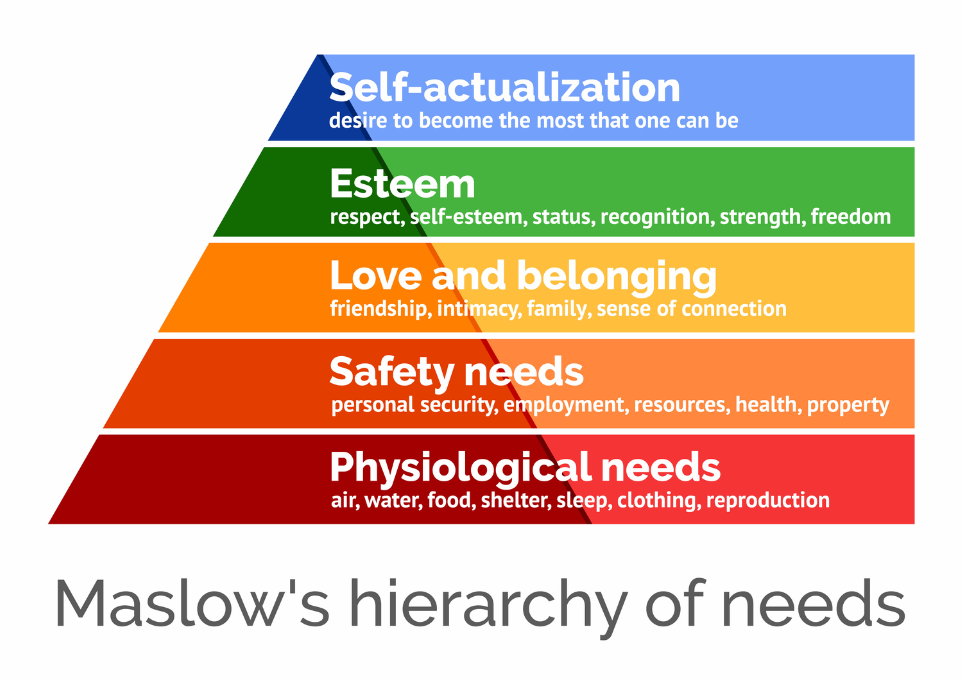Love does not Rejoice in Iniquity
Love thinks no evil.
Jesus and Anger
Love is not Provoked
Politics & Social Media
Did you know that people get more upset discussing politics on social media than they do in person? Could that because perceptions play a bigger role due to the text format? It could also be a result of keyboard courage.
According to a recent study by Pew Research, 55% of people on social media feel worn out by political posts and only 15% enjoy seeing political posts in their newsfeed. (Anderson, 2020). Republicans are more likely to feel worn out and less likely to enjoy seeing political posts – perhaps due to their leader constantly being under attack.
There are many people that feel worn out by political posts and yet make political posts themselves. They post memes which support their political opinion and get upset when others disagree. The Pew Research study found that online, political discussions reveal political differences between friends over 70% of the time. So, when we post something political on social media, we should expect people to disagree with us rather than be of the same mind.
When we are discussing politics with someone face-to-face, we can hear the tone of their voice. We can “hear” their body language. When I discuss politics online, it is often with a chuckle and a slap on the knee. However, those reading what I type may “hear” someone screaming, jeering or taunting them. That is the disconnect often experienced by online-text communication. In addition to that, many people find keyboard courage online. That means they say things or take positions online that they would not in person. This phenomenon also includes a lack of courtesy. Some people will hurl insults and call names online and would never do that if they were sitting across the table with the same person in a coffee shop.
The settings on social media allow the user to filter out what he or she sees from others and what they can see from them. I have used the privacy settings so that only a handful of my friends can see my political posts. I have also “unfollowed” some of my friends but have not defriended them. Unfollowing isn’t a great option. I only use it with “friends” who are posting purely political posts. When we unfollow someone, we don’t see any of their posts. That means we don’t see updates on their family, non-political jokes or uplifting spiritual memes they post. We have to specifically go to their page and see what has been going on with them.

One frustrated man said when he posts a political meme on social media it is like putting a yard sign in his yard – it is not open for debate. However, that comparison fails. A yard sign is not an interactive type of media. A yard sign is also only visible to others that live in your neighborhood or are passing by. When a user posts on social media it goes right into the face of others in their network. It is more like posting yard signs in the front yards of everyone in their network. Others open their phone’s browser or sit down at their PC and the memes are in their face.
When we make a political post on our social media, we are asking for feedback regardless if we realize it or not. It may be a video on our YouTube channel or a meme on our Facebook or Instagram. Whatever the means and media, someone that disagrees is likely to respond. Imagine leaving a $100 bill on the dashboard of your car and discovering someone had broken into the vehicle while you were gone and stolen the money. Would that be expected? Well, theft is always wrong and breaking into another person’s car to take their money is never justified. However, it certainly would not be surprising if we were to leave large amounts of cash in the open to be easily seen. Those that feel exhausted by political posts on social media, and yet continue to post political opinions, are acting out in a self-destructive manner.
Some people that get caught up in this self-destructive behavior blame it on those that a provoking them. They label them trolls. A troll on social media is one that posts something that is inflammatory, or off-topic, with the purpose of getting other people upset. An example would be someone leaving the comment “this video sucks” on a YouTube video. While political discussion is frequently upsetting, labeling someone a troll that is disagreeing may just be a way of trying to blame them for getting upset. James Hanson writing for University of Nebraska, Lincoln clarified this. “Someone who argues a point isn’t trolling. Someone who brings something off topic into the conversation in order to make that person mad IS trolling.” (Hanson, 2018) Trolls often strike business pages on social media. They will derogatory posts on the page about the business. Blaming someone else for my emotional reaction to them is a
I enjoy discussing politics. I have enjoyed it since I was in high school. I am a political independent which means my ideology is not locked into that of a political party. I have no dog in the fight, so to speak. I have political opinions, but they are subject to change. I was once extremely pro-life but became pro-choice because I discovered new information from interacting with those that thought differently. I was also once a militant environmentalist and today am much more skeptical about the causes of climate change than I once was. I do chuckle when discussing politics. I don’t take myself too seriously. I find it very humorous when I hear someone making an argument that I used to make myself but then later saw as faulty and abandoned.
Politics is not for everyone. While some people find it incredibly boring, others get so upset when people disagree with them that it is hardly worth the emotional price they pay. Human relationships are what make life enjoyable and satisfying. Over 70% of the people we know and interact with think differently about politics than we do. If we cannot disagree without getting upset, we either need to cut off interaction with all of those people or avoid discussing politics. Expecting others to agree with us politically so that we can preserve the relationship is simply not a realistic expectation.
References:
Anderson, M., Auxier, B., (2020). 55% of u.s. social media users say… Retrieved from pewresearch.org
Hanson, J., (2018). Trolls and their impact on social media. Retrieved from umlcms.unl.edu
Self-Transcendence

Self-actualization is the top tier in Maslow’s Hierarchy of Needs. Maslow’s theory is that humans have various needs. Basic needs must be met before advanced needs. Self-actualization can only be achieved once all needs (those basic and advanced) are met. A pyramid is typically used to illustrate the hierarchy of needs. Maslow did not calculate spiritual needs in the application of his theory as he is considered to be part of the humanistic movement by many.
Maslow’s theory is accepted by most secular psychologists today, however Christian therapists have taken issue with it. Maslow’s basic premise is that humans are trustworthy, loving and self-governing and that violence only occurs due to needs not being met. This fails to understand man’s sinful nature and the influence of demonic spirits. Maslow’s theory does contain a great deal of truth which is why it continues to be used today in therapy and business. The theory seems to work when people first have a spiritual basis on which to live. That is, humans need to first be trustworthy, loving and self-governing before the theory applies to them. Humans only become that way with divine assistance. Furthermore, in the Christian worldview, self-actualization is only achieved through self-transcendence – achieved only with spiritual means.
In the Christian worldview, human needs are not provided solely through human effort but in partnership with Jesus Christ. Jesus said, “Come to Me, all you who are weary and burdened, and I will give you rest. Take My yoke upon you and learn from Me, for I am gentle and humble in heart, and you will find rest for your souls. For My yoke is easy and My burden is light.” (Matt. 11:28-30). The yoke is an instrument used to tie two animals together to share a burden of work. Christ’s yoke joins the human with the divine. It is in this way that our needs are achieved. In Andrew Pfeifer’s essay on the Christian perspective of Maslow’s hierarchy, he suggested the lines that divide the levels on the pyramid should be dotted, representing how Christ is intertwined at every level. (Pfeifer, 1998)

Maslow believed only 1% of people reach self-actualization. (Maslow, 1968) This is the level where a person meets their full potential. It isn’t the end of the journey as those at this level continue to expand their potential.
Neurotic needs create anxiety and prevent progress to upper level needs in the hierarchy. Examples of neurotic needs may include the desire for others to like them because they have low self-esteem or a feeling of worthlessness. Looking to a spouse or partner to solve life’s problems (instead of simply sharing life) is also neurotic. Trying to dominate or control others is neurotic. Self-centeredness to the point of exploiting others is neurotic. More than normal, the neurotic seeks praise from others. A neurotic person seeks to be better than their peers so they push to always win by any means. Neurotics have a need for perfection which causes them to try and control circumstances. Neurotic conditions that are not treated prevent many from self-actualization and other higher-level needs.
These are characteristics of self-actualited people: They see reality as it is. They are more likely perceive if someone is superficial or dishonest. They accept themselves with their flaws. They are independent-minded and thus do not look to others or their culture to form their views. There self-identity is not tied to what they think others want. They have a purpose outside of themselves to accomplish in life. They can appreciate excellence and beauty. They find joy from their five senses which allows them to stop and appreciate a given moment in time. They have close interpersonal relationships characterized by deep loving bonds. They are also comfortable being alone and can enjoy solitude. Their sense of humor is not offensive. They can laugh at themselves. They have “peek experiences” which are moments marked by ecstasy, harmony and deep meaning. They are empathetic. They have a social interest. They interact with a community and feel part of humanity. They love others for the sake of loving them and not to receive love in return.
References:
Maslow, A., (1968) Towards a psychology of being. New York p. 204
Pfeifer, A., A., (1998) Abraham maslow’s hierarchy of needs: A christian perspective. School of Education Andrews University, Berrien Springs, Michigan


